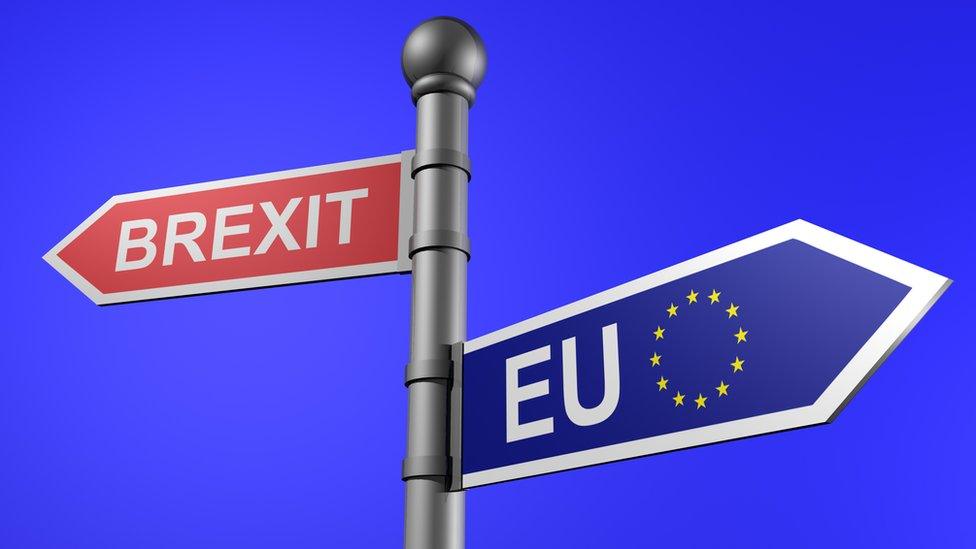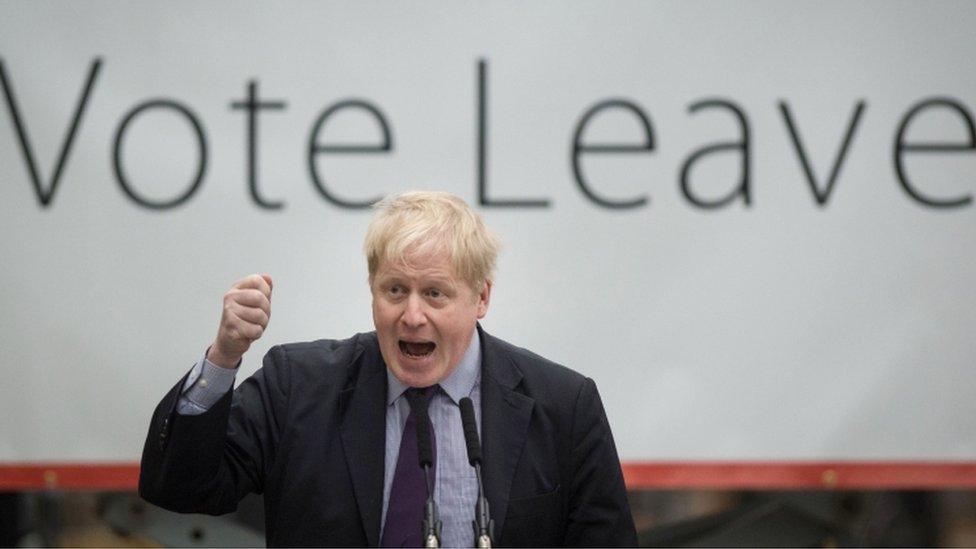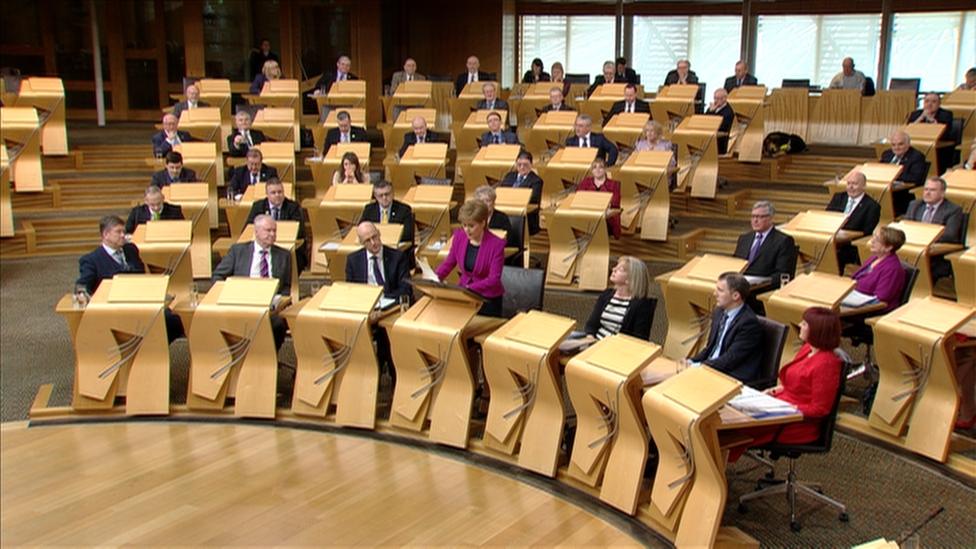EU referendum: A simple choice but a complex decision
- Published

By definition, a referendum presents us all with a choice. That was true with the independence plebiscite in 2014. It is true now with the vote over whether the UK should remain within the European Union or not.
As in 2014, it is a simple choice - Remain or Leave - but a complex decision, with a range of competing factors.
That complexity, those layers, were on display at Holyrood today in what was a rather intriguing debate. More interesting than the advance arithmetic would have suggested, with the vote weighed heavily towards Remain.
Firstly, let me praise those MSPs who were speaking for the first time. Each delivered cogent, substantive contributions. Seriously, they were good. It would be invidious to single any one out. So I won't. Ok, maybe later.
Incidentally, several of the newbies said they were delivering their "maiden" speeches, in defiant contradistinction to the prevalent view that this is an inappropriate term.
Indeed, there was some advance discussion on this point, with searches for an alternative. "First speech" sounds a little pallid. Prime, then? Sounds like steak. Debut? Aye, not bad. I suggested "Holyrood Première". Or indeed premier, depending on gender.

Some on the Left are reluctant to align themselves with leading Leave figures such as Boris Johnson
But to our tale. The layers on display. Fiona Hyslop ably mustered the Scottish government case for remain. Scottish jobs dependent on exports to the EU, support from the Union for Scottish developments such as renewable energy, the contribution made by migrants to our culture - and to our Exchequer through taxation.
It was left to Michael Russell to recall, in a well-phrased contribution, that many aeons ago the SNP had advocated withdrawal from the European Community. That was until they adopted the concept of Scotland in Europe - which was designed to placate anxiety: the argument being that Scotland would not be solely quitting the UK but rather entering Europe, on her own terms. Not leaving, but joining.
Mr Russell reminded the chamber that this policy was principally driven at the time by Jim Sillars. With a blend of sadness and light acerbity, Mr Russell noted that he (Russell, M) continued to espouse that cause. Mr Sillars is now a prominent Leave campaigner, arguing that remaining in the EU traps Scotland in a conjoined structure which is inherently suspicious of Scottish independence.
Perhaps it was Mr Russell's contribution. More probably, it was always going to happen. But a series of MSPs, notably John Lamont of the Conservatives, sought to portray the SNP position as illogical.
They were, said critics, keen to leave the United Kingdom - and yet concomitantly eager to immerse Scotland in the much larger Union of Europe.
Others - such as Adam Tomkins, a Tory newbie - made a further point. Prof Tomkins, in a thoughtful speech, drolly recalled that it was 41 years since the UK had been asked to decide over Europe. Yes, he said, a generation ago. The chamber, of course, instantly grasped the reference to declarations by sundry SNP leaders during indyref.
Successive SNP speakers fought back vigorously. This present decision was quite distinct from 2014. Further, for as long as Scotland remained within the UK, it was important to maintain membership of the EU, with its advantages for trade, social rights and solidarity.
More subdued
More widely, however, one might characterise the Conservative contributions as courageous, given the extent of division in their own ranks.
Such was displayed today - although it was much more subdued than is currently the case at Westminster. Tory MSPs Margaret Mitchell and Graham Simpson argued the case for Leave. Ms Mitchell dealt with the cost and supposedly unchecked immigration. Mr Simpson focused more upon the loss of sovereignty which he associated with the EU.
The Greens' Ross Greer delivered support for the EU but not without stressing the need for reform. For the Liberal Democrats, Alex Cole-Hamilton spoke with notable vigour and passion, palpably impressing the chamber. He too backed Remain, in line with his party's long-standing position.
Which leaves Labour. The leader, Kezia Dugdale, produced an excellent speech. Deftly constructed, it moved through the pragmatic reasons for Remain - the economy, workers' rights - before arriving at a passionate defence of cross-border solidarity, stressing the "beauty" of such a collaborative construct.
Finally, from the backbenches, evidence of the tension which persists within Labour ranks. Some on the Left itch to back Leave. They hark back to an earlier tradition - Tony Benn, Peter Shore - which tended to castigate the Common Market and its successors as a bosses' club, inimical to Socialists and Socialism.
But, in doing so, they too find present company inimical. As one said to me: "Am I really going to ally myself with a campaign whose leading public figures are Boris Johnson, Michael Gove and Nigel Farage?"
And so, in her speech, Labour's Elaine Smith lamented the fact that the Leave movement was led from the Right. Rather she espoused the case for unpicking what she saw as a conspiratorial endeavour to overturn post-war Socialist advances.
As I said, a simple choice with complex facets.
- Published26 May 2016
